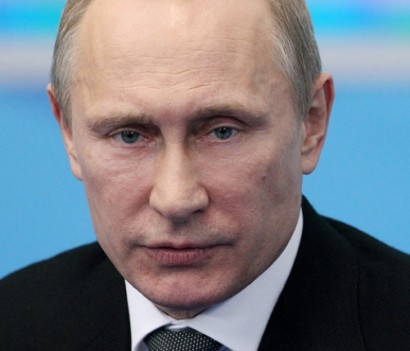+21 °C, +15 °C ... +28 °C Tomorrow:+32 °C

Donetsk airport, its runways cratered by shelling, its buildings battered and its control tower decapitated, is a modern ruin that has long ceased to function. To lose lives over it seems senseless. Yet such is its symbolism for both sides that the fighting between Ukrainian forces and separatists there goes on unabated, with the Ukrainians now claiming to have recaptured ground they had earlier lost. Meanwhile, diplomacy has all but stalled. As the shells and missiles flew on Monday in eastern Ukraine, Europe’s foreign ministers, meeting in Brussels, determined that there were no grounds for any relaxation of sanctions. The strategic plan developed by the EU’s foreign policy chief, Federica Mogherini, for a graduated reduction in sanctions in return for Russian concessions and cooperation in Ukraine and elsewhere has been set aside, as most people expected it would be, until the situation changes in a fundamental way. This situation isn’t just a nasty little shootout between local militias and the underequipped and inexperienced battalions of the Ukrainian army. It illustrates how the geopolitical calculus of President Vladimir Putin, as he continues to furbish his anti-western narrative while crushing dissent within Russia, has led to some of the worst crimes perpetrated on European soil since the Balkan wars of the 1990s. Indeed, it takes a twisted conspiratorial mindset, or brainwashing by Russian propaganda, to even attempt to deny that Russia’s armed forces have been deeply engaged in backing the rebel separatists of Donetsk and Luhansk, and making sure Ukraine’s sovereignty over its internationally recognised territory is not restored. It is precisely because of this involvement that the war has gone on for so long. Each time the rebels begin to lose, as in August 2014, more troops and weaponry funnel in from Russia. Civilians are at risk. In the worst recent incident, a rebel shell struck a bus near the locality of Volnovakha, on 13 January, killing 12 people and wounding 17. Local people posted a picture on social media showing inhabitants holding up the sign “Je suis Volnovakha”. The conflict in Ukraine has caused over 4,800 deaths since its outbreak in the spring of 2014, according to the World Health Organisation. Recent attempts to get peace talks going have failed. The so-called Minsk ceasefire, agreed in September 2014, has been violated from the start, by both sides. The German chancellor, Angela Merkel, rightly cancelled a meeting due to be held in Kazakhstan with Mr Putin because there were no real prospects of progress. Russia still hasn’t implemented its side of the 12-point ceasefire accord: in particular, it must withdraw its forces from Ukraine, pull its army away from the border and accept the deployment of international monitors on that same border. Without such steps, any diplomatic opening to Mr Putin would be useless, and a show of European weakness. The same logic surely applies to the lifting of European sanctions. There is, after all, no other European leverage available. It would be foolish and dangerous to let go of that leverage before peace has returned. |
MAMUL.am - News from Armenia, Artsakh (Nagorno-Karabakh) and the world
Republication or redistribution of MAMUL.am content is expressly prohibited without the prior written consent.
Address: 1 Charents str., Yerevan, Republic of Armenia.
Tel.: +374 (10) 55-20-59
E-mail: info@mamul.am
Tel.: +374 (91) 99-22-02
E-mail: marketing@mamul.am






























